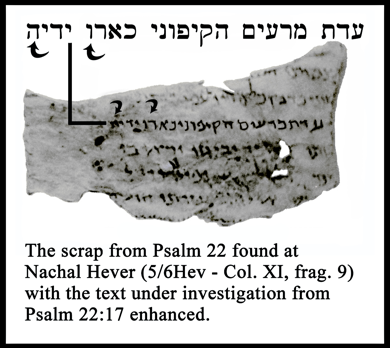PruePhillip
Well-Known Member
Wait -- you said it wasn't about a lion but I showed 2 other references to a lion, making the use of the word as lion consistent with the context. The other option, "k'aru" isn't even a grammatical construct in Hebrew and appears no where else in the Jewish texts. For "ka'ari" look in Num 24:9 to begin (there are others).
It's also about bulls and dogs attacking this person. Check the Hebrew on this one.
But really, I don't think Psalm 22 is about a lion attack.

